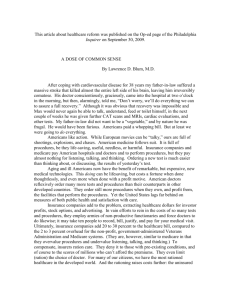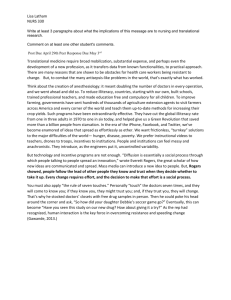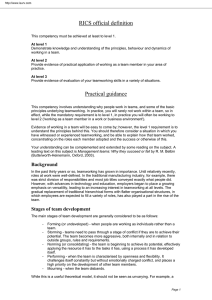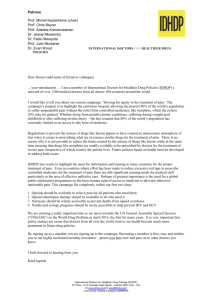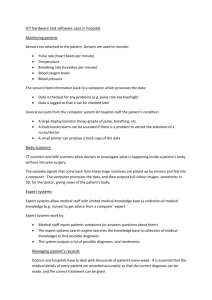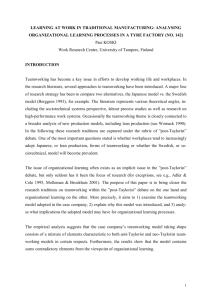Some discursive effects of professional and social capital
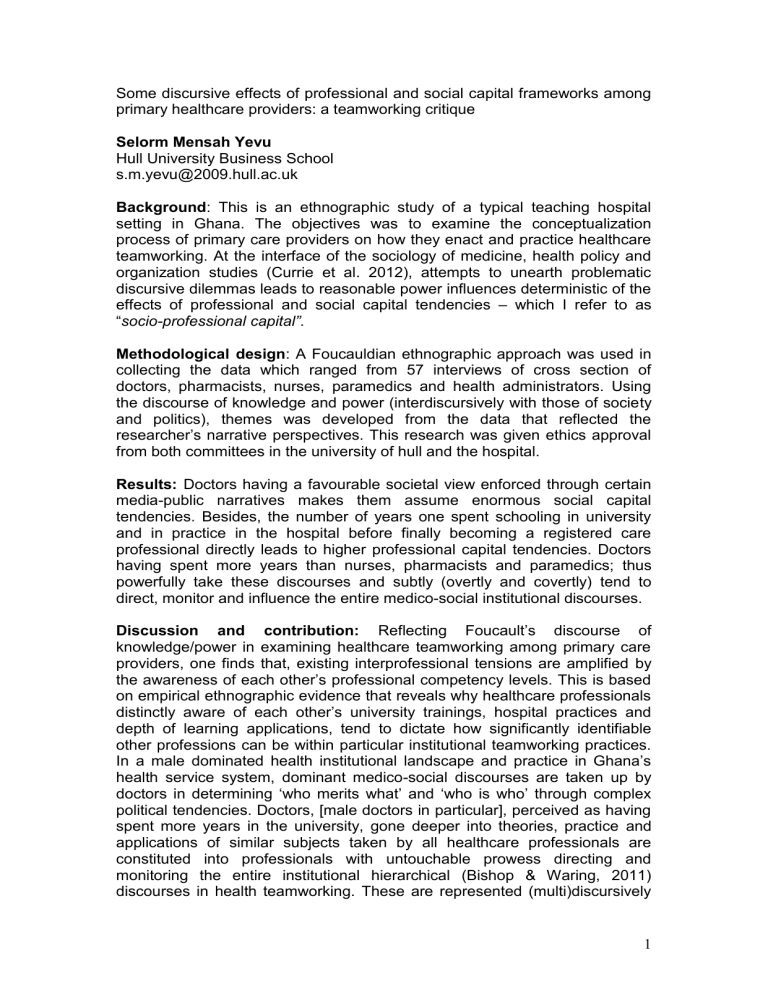
Some discursive effects of professional and social capital frameworks among primary healthcare providers: a teamworking critique
Selorm Mensah Yevu
Hull University Business School s.m.yevu@2009.hull.ac.uk
Background : This is an ethnographic study of a typical teaching hospital setting in Ghana. The objectives was to examine the conceptualization process of primary care providers on how they enact and practice healthcare teamworking. At the interface of the sociology of medicine, health policy and organization studies (Currie et al. 2012), attempts to unearth problematic discursive dilemmas leads to reasonable power influences deterministic of the effects of professional and social capital tendencies
– which I refer to as
“ socio-professional capital ” .
Methodological design : A Foucauldian ethnographic approach was used in collecting the data which ranged from 57 interviews of cross section of doctors, pharmacists, nurses, paramedics and health administrators. Using the discourse of knowledge and power (interdiscursively with those of society and politics), themes was developed from the data that reflected the researcher’s narrative perspectives. This research was given ethics approval from both committees in the university of hull and the hospital.
Results: Doctors having a favourable societal view enforced through certain media-public narratives makes them assume enormous social capital tendencies. Besides, the number of years one spent schooling in university and in practice in the hospital before finally becoming a registered care professional directly leads to higher professional capital tendencies. Doctors having spent more years than nurses, pharmacists and paramedics; thus powerfully take these discourses and subtly (overtly and covertly) tend to direct, monitor and influence the entire medico-social institutional discourses.
Discussion and contribution:
Reflecting Foucault’s discourse of knowledge/power in examining healthcare teamworking among primary care providers, one finds that, existing interprofessional tensions are amplified by the awareness of each other’s professional competency levels. This is based on empirical ethnographic evidence that reveals why healthcare professionals distinctly aware of each other’s university trainings, hospital practices and depth of learning applications, tend to dictate how significantly identifiable other professions can be within particular institutional teamworking practices.
In a male dominated health institutional landscape and practice in Ghana’s health service system, dominant medico-social discourses are taken up by doctors in determining ‘who merits what’ and ‘who is who’ through complex political tendencies. Doctors, [male doctors in particular], perceived as having spent more years in the university, gone deeper into theories, practice and applications of similar subjects taken by all healthcare professionals are constituted into professionals with untouchable prowess directing and monitoring the entire institutional hierarchical (Bishop & Waring, 2011) discourses in health teamworking. These are represented (multi)discursively
1
as the possible extensions of the existing knowledge debates at the intersection of medical sociology, health policy and organization studies
(Currie et al. 2012a; Currie & White, 2012). Therefore through astute health expertise, doctors unreservedly possess enormous professional and social capital, through their legitimate claims to been more of an expert than other care providers and their perceived favourably societal views. These they use to dominate the entire institutional discourse leading to some tensions interprofessionally and less expressions of significance, affecting the perceived quality of life of others (nurses, pharmacists) in care teams.
2
